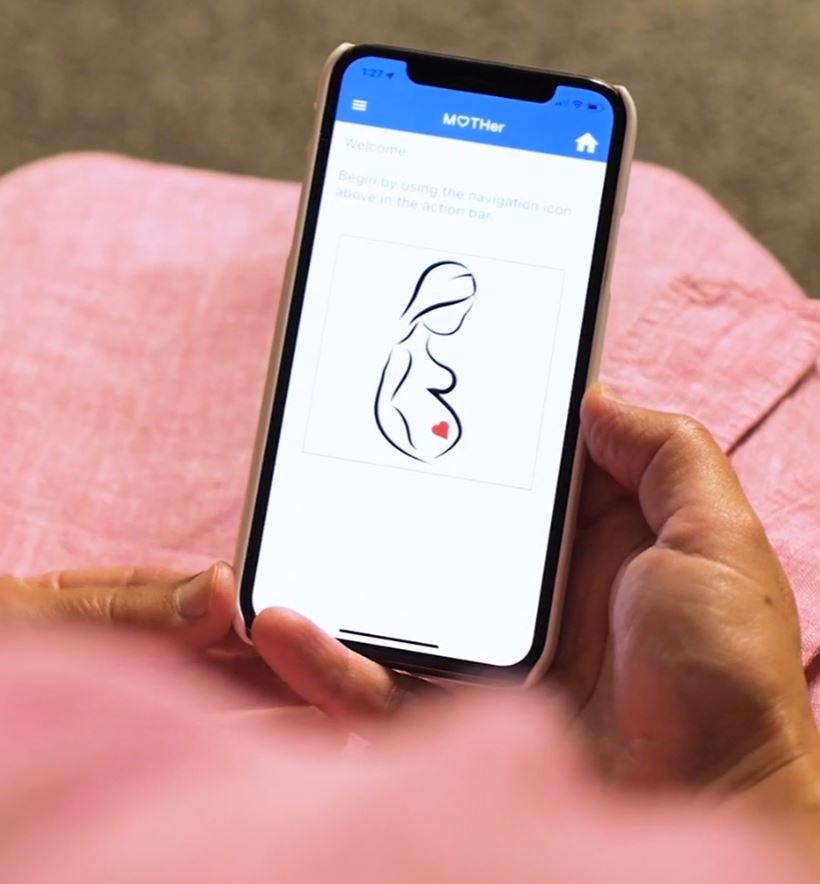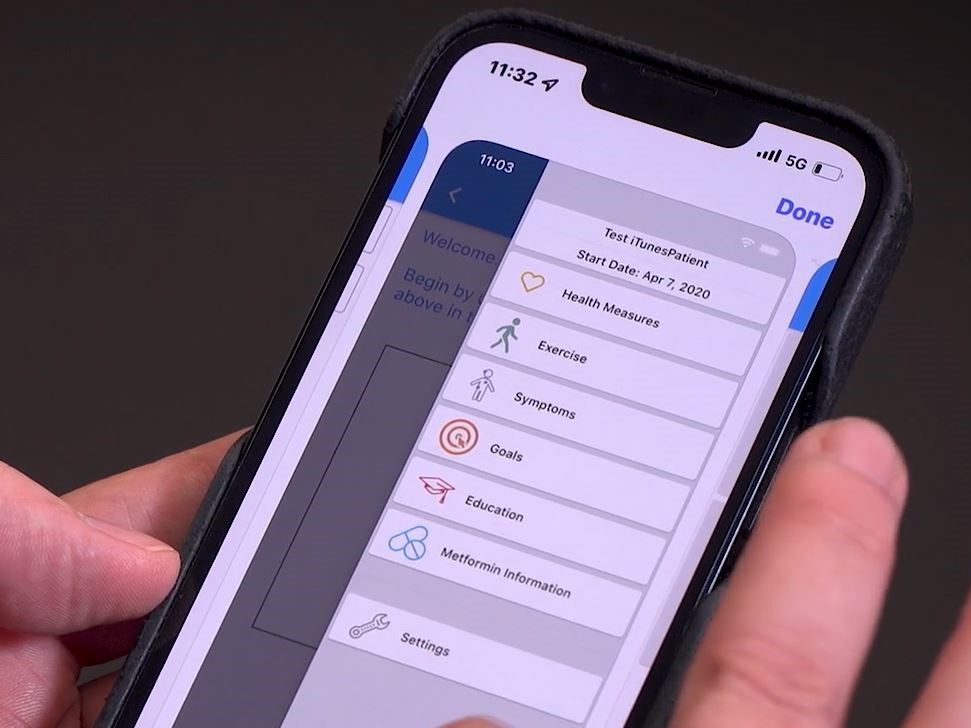AEHRC tech triumphs at the 2023 Research Australia Awards
Research Australia, the national peak body for health and medical research, recognised Marlien and her team’s work in the digital health space. The annual awards celebrate the country’s best and brightest minds.
We sat down with Marlien to chat about what the project and the award mean to her.
Marlien (centre) with team members Kaley Butten and David Silvera at the 2023 Research Australia Awards.
Marlien on M♡THer, mobile health, and making a difference
Tell us about your research…
Currently, I am Principal Research Scientist and Group Leader (Digital Therapeutics and Care) at the Australian eHealth Research Centre, CSIRO. My research focuses on creating innovative ways to improve health outcomes for the elderly, people living with disability, the chronically ill, and trauma-affected patients.
How will it benefit society and future generations?
The project that was nominated for this award is M♡THer, a digital solution that integrates a smartphone app, the Internet, measurement devices and multimedia content to support women with gestational diabetes from diagnosis through to childbirth.
Many pregnant women work while having to juggle attending multiple appointments at different times with different health care professionals. Often, it’s not convenient or practical. This can be aggravated by large travelling distances, inadequate or no independent means of transportation, or needing to rest to avoid preterm delivery. In order to address these barriers, M♡THer was developed in partnership with clinicians and consumers. The aim is not only to offer support to the women, but also to improve multidisciplinary care co-ordination and decrease the number of unnecessary ante-natal GDM clinic visits.
Why is it so important to talk about the research and let people know about it?
M♡THer can provide access to health care in remote communities that currently lack access to these services. I believe that the M♡THer system has the potential to significantly benefit pregnant women with diabetes, the staff caring for these women, and ultimately health care systems through enabling clinicians to provide more timely interventions when appropriate and reducing unnecessary visits to GDM antenatal clinics.
What does being chosen as a finalist for mean to you?
The award is an acknowledgement of our dedicated team and collaborators. Without their creativity and commitment, we would not have been able to achieve our collective goals.
What would you like to say to your primary nominator for acknowledging your work?
I would like to acknowledge David Hansen and my team. I am fortunate to work with such talented individuals, and I thank each one of you. Together, we have proven that teamwork and collaboration can yield remarkable results.

More on M♡THer
Dr Varnfield pioneered the creation and implementation of the M♡THer app. With over 6000 women having used the app in Australian hospitals, M♡THer has catalysed a revolutionary transformation of gestational diabetes management within Australian hospital and health services, mitigating the burden on women with GDM.
The traditional approach to management of GDM has been resource intensive, requiring the careful monitoring and stabilisation of blood glucose levels (BGLs) and weekly to fortnightly in-person appointments.
The M♡THer platform is an agile solution to this problem and has been developed to exist within current clinical workflows.
The patient-facing smartphone app enables capture of blood glucose levels (BGLs) and other health measures (inc. weight, blood pressure, stress, sleep, symptoms). It delivers motivational notifications, provides educational multimedia content, and links to education regarding management, providing women with at-hand GDM support.
A secure web based clinical portal enables healthcare practitioners from different disciplines to assess their patient’s progress and provide early intervention when needed. Each patient user has their own profile compiled through the clinician portal to ensure that the app and GDM management experience is individualised.
The novel smartphone- and Internet-based interactive system uses metadata to define the data types within the platform. The user interface is generated from the metadata so new data types can easily be added and custom datatypes can be defined by the users. This makes the platform adaptable for other disease states that require close monitoring. Through collaboration, Dr Varnfield has facilitated multiple adaptations including platforms for the management of cardiovascular disease, chronic kidney disease, severe mental illness, and cancer-care survivorship.
Making a difference
To date the platform has been tested with 5 Australian hospitals of varying sizes.
Users reported the app is user-friendly, convenient, and helpful in managing their GDM. Clinicians report improved communication with patients and increased multi-disciplinary coordination among themselves.
The platform also enables economic savings for health services and patients. Cost savings for patients are estimated to be considerable ($566.56 per patient) after accounting for lost wages, childcare, and travel expenses avoided.
The successful adoption of the platform and its potential for more efficient resource distribution has seen Queensland’s largest maternity hospital, the Mater Mothers Hospital, amongst others, adopt the digital health approach.
The Australian e-Health Research Centre (AEHRC) is CSIRO's digital health research program and a joint venture between CSIRO and the Queensland Government. The AEHRC works with state and federal health agencies, clinical research groups and health businesses around Australia.


